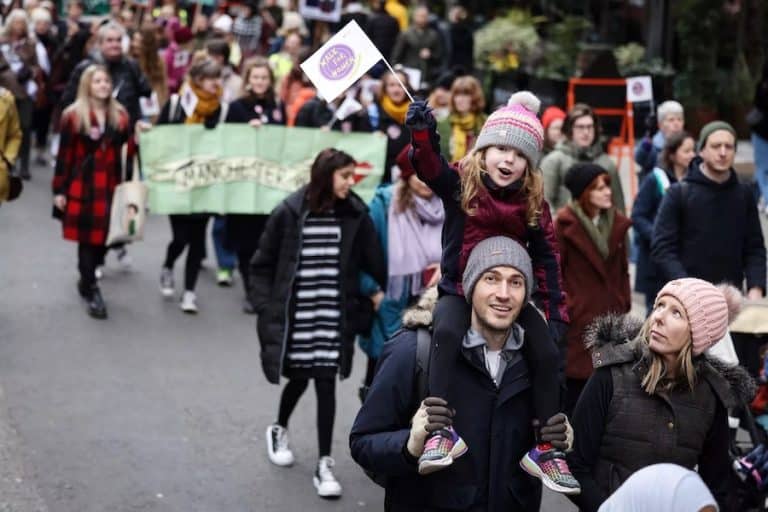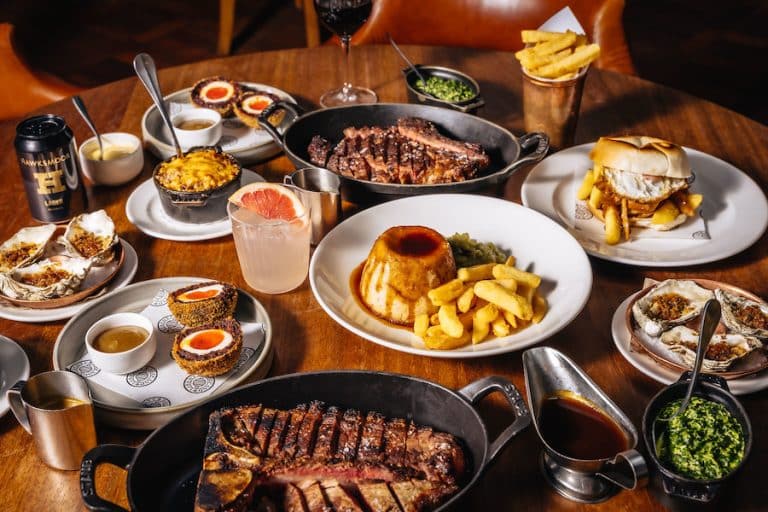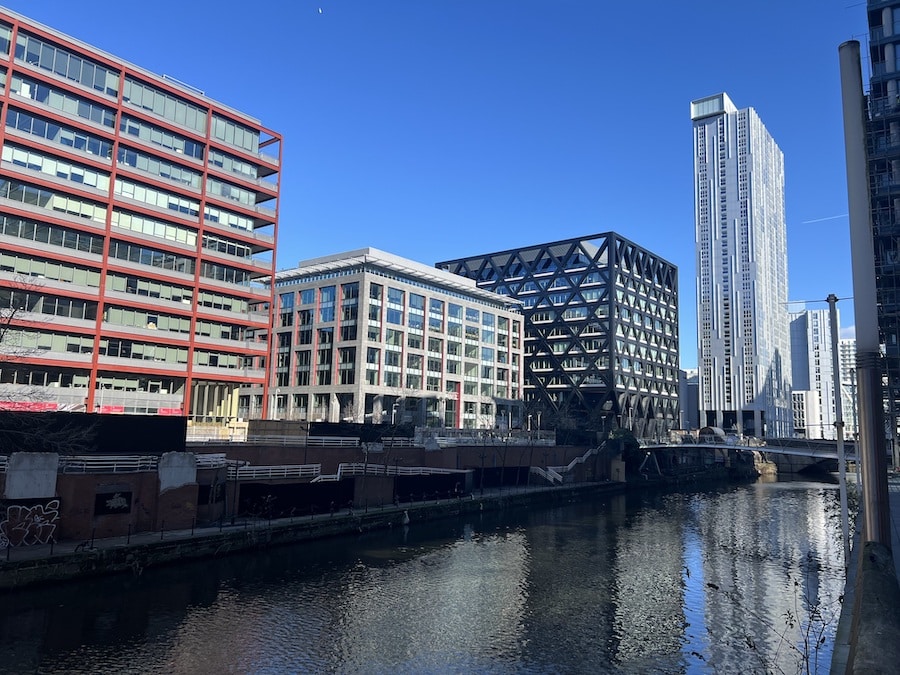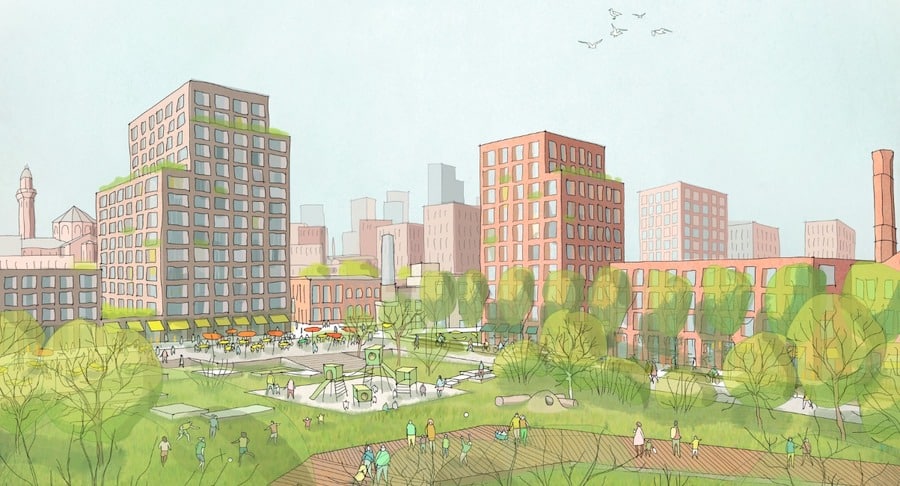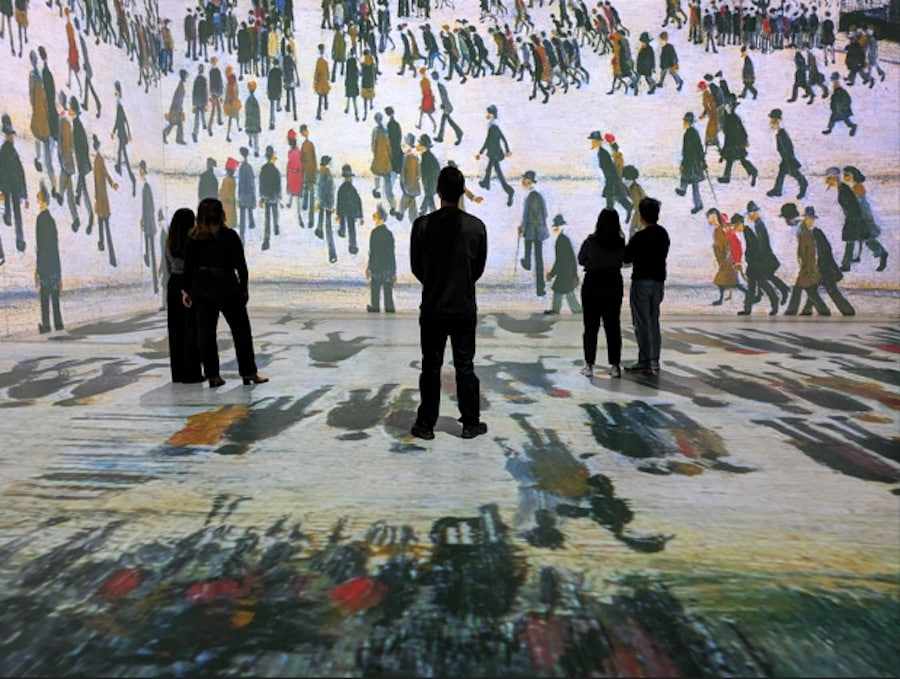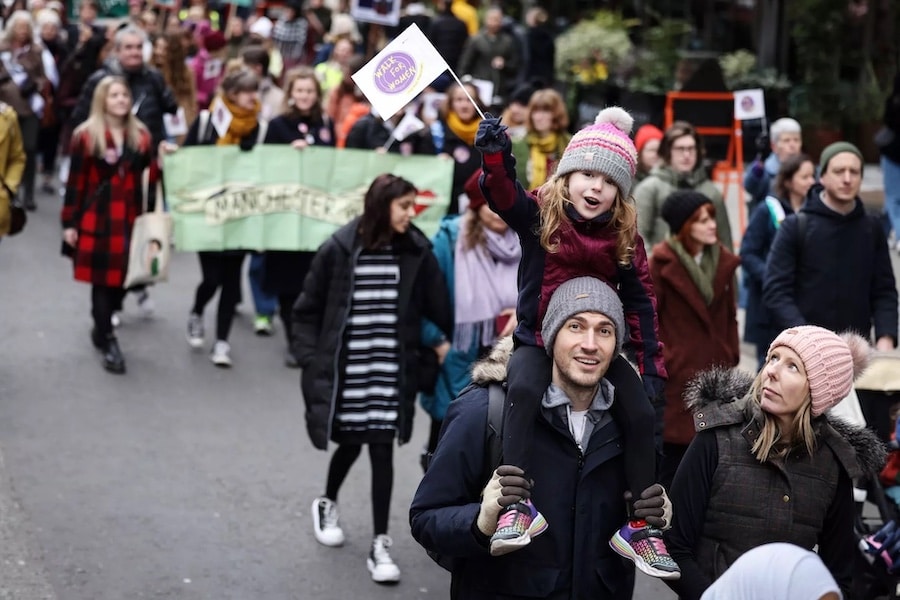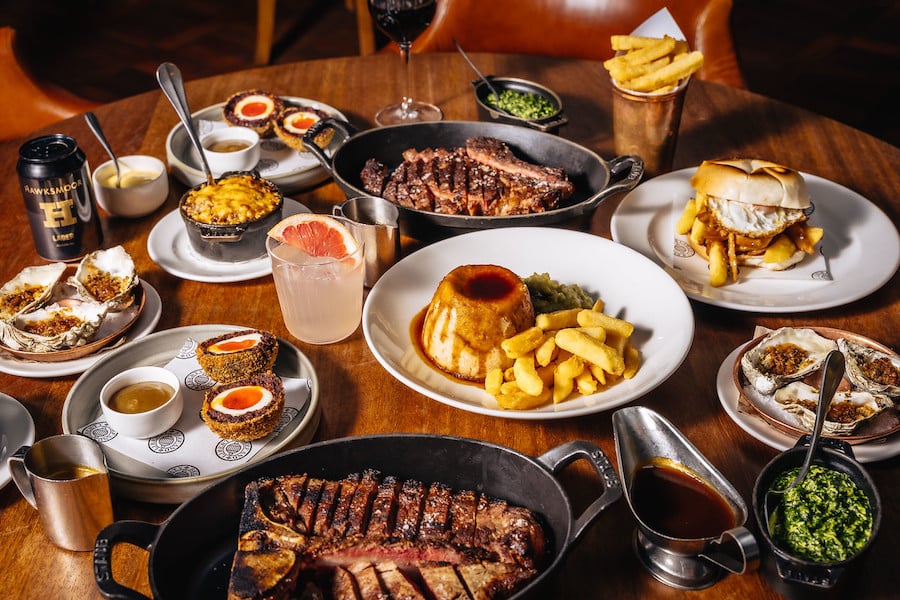Manchester’s magnetic story: Brian Groom’s new book reveals the city’s soul
- Written by Thom Bamford
- Last updated 10 months ago
- Books, City of Manchester, Culture

With the success of his debut book, “Northerners: A History, from the Ice Age to the Present Day,” Brian Groom captured the imagination of readers far and wide, offering a nuanced exploration of the region’s past.
Now, on the brink of releasing his eagerly awaited second book, “Made in Manchester: A People’s History of the City that Shaped the Modern World,” He invites us to delve deeper into the essence of Manchester.
French social commentator Alexis de Tocqueville once wrote, “From this filthy river, pure gold flows.”
It’s a sentiment that resonates deeply with the essence of Manchester—a city whose history is as diverse and dynamic as the waters and people that flow through it.
Brian has quickly established himself as one of the leading authorities on northern England’s history and now turns his attention to Manchester.
Born and raised in Stretford, there’s no one better than him to peel back the layers of this ancient but very, very modern city.
We sat down with the author to discuss his new book, Manchester, and the undulating fortunes of our great city.
Brian Groom on Made in Manchester
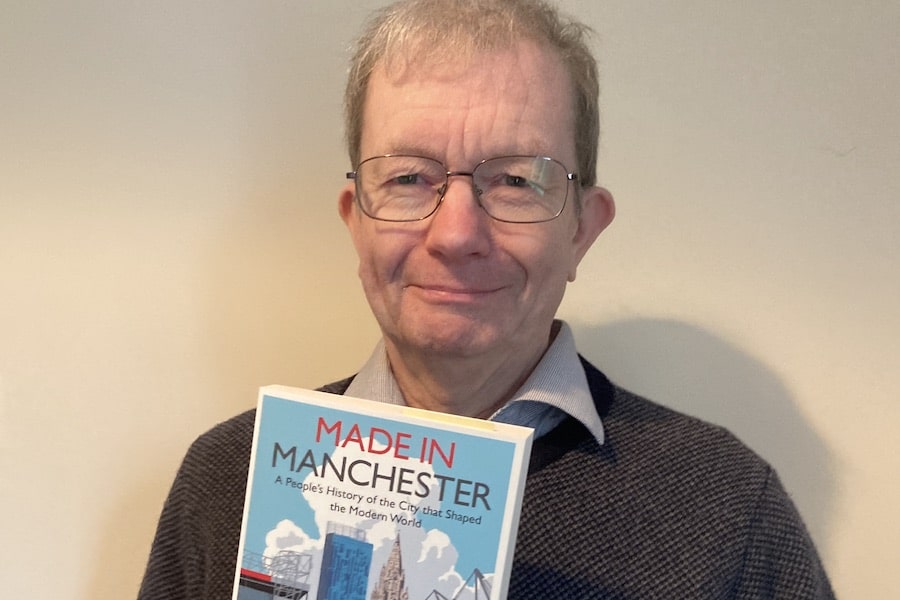
Groom’s exploration of Manchester’s history unveils a narrative that oscillates between periods of great success and looming decline.
From its Roman roots to its pivotal role in the Industrial Revolution, the city’s trajectory is marked by resilience, reinvention, and a steadfast spirit.
“One significant difference between my previous book, ‘Northerners,’ and this one is that there is comparatively less focus on early history,” Groom explains.
“This is primarily due to the limited amount of historical material available.
“I predominantly begin with the Romans, with the first two chapters encompassing the Middle Ages, the Romans, and the Tudor Age, along with a brief glimpse beyond.
“The narrative swiftly progresses through history until the Industrial Revolution, which is reached by chapter three. So we’re into the thick of it early on”
The Industrial Revolution: Manchester’s moment
The book explores the up and down fortunes of the city; from prosperity to decline, to boom and bust.
“London is obviously the capital, yet Manchester undeniably experienced some massive historical moments. It’s like Asa Briggs remarked, naming Manchester as the “shock city” of the 1840s.
“It pioneered the factory system within the industrial cityscape, captivating the attention of the entire world, which had not witnessed anything quite like it before.”
People flocked to Manchester to witness its evolution firsthand and ponder what the future held.
It was an exhilarating yet daunting era, as the outcome of the Industrial Revolution remained uncertain—whether it would yield prosperity or famine was unknown, stirring great anxiety.
As the Industrial Revolution unfolded, Manchester found itself at the forefront of global debates on economic policies and social progress.
However, as the century progressed, the city’s prominence waned, leading to shifts in attention towards other industrial centres like Birmingham and the burgeoning metropolis of London.
Roman Roots and Cosmopolitan Spirit
Delving into Manchester’s Roman origins, Brian highlights the city’s enduring cosmopolitan character.
“Manchester has historically been a very cosmopolitan city,” he notes.
“This characteristic dates back to its origins when Roman soldiers arrived to establish a fort in this rather rainy and sparsely populated area.
“These soldiers hailed from various corners of the empire, likely including regions such as the Netherlands, Germany, Spain, and beyond. Their presence must have created a unique and diverse atmosphere in what was then a relatively isolated location.
“Little did they envision that centuries later, Manchester would become the epicentre of the industrial revolution.”
This wasn’t just the case in Roman times, as Brian elaborated: “This cosmopolitan trend has persisted to the present day. In the 19th century, Manchester continued to attract not only visitors but also businesspeople from across Europe and beyond.
“Particularly noteworthy were the German merchants who arrived to engage with the booming cotton industry.
“Later in the century, there was a significant influx of working-class migrants, including Jews from Eastern Europe fleeing pogroms and individuals from rural Italy seeking escape from poverty.
“This further enriched Manchester’s cultural fabric, making it a truly cosmopolitan hub during that era.”
“Even now, Manchester remains a melting pot of cultures,” Brian observes.
“More than 150 languages are spoken in the city today, underscoring its continued status as a diverse and vibrant metropolis.”
Manchester Music before Madchester?
The City’s history seems to be forever linked with music.
Brian said: “The book features numerous chapters that intersect with various social and cultural themes, and given Manchester’s rich musical heritage, there’s a dedicated chapter on music.
“This encompasses both classical and pop music, reflecting the city’s diverse musical landscape.
“While the city’s musical legacy predates iconic bands like Joy Division and The Smiths, there’s a significant focus on the explosion of music from the mid-70s onwards, extending through the end of the 20th century.
“During this period, Manchester experienced a surge in musical innovation, solidifying its reputation as one of the foremost pop music cities globally.
“This musical renaissance played a pivotal role in Manchester’s revival, making it not only a significant but also an influential chapter in its musical history.”
Manchester current climate
As Manchester strides into the 21st century, it finds itself at a crossroads of transformation and renewal.
“Manchester’s trajectory has been marked by resilience and reinvention,” Brian reflects.
“However, the city now faces new challenges as it grapples with rapid redevelopment and socioeconomic disparities.”
“One aspect I found particularly intriguing while writing the book is the clear story arc in Manchester’s trajectory.
“From its rise as the premier industrial city in the early 19th century to the substantial decline post-World War II, especially evident in the bleak years of the 70s and 80s, where the city’s survival seemed uncertain.
“However, since then, Manchester has staged an impressive recovery, gaining momentum with each passing year.
“In fact, the city’s population has expanded at three times the national rate, reaching remarkable milestones like the resurgence of its city centre population from a mere 400 residents in the 90s to approaching a hundred thousand today”
The skyline dotted with towering structures symbolises growth and progress, yet it also sparks debates about aesthetics and equity.
“The challenge lies in reconciling these disparities.
“While Manchester has achieved economic prosperity, it must ensure that the benefits are equitably distributed among its diverse population.
“The rapid transformation, while exciting for some, is disconcerting for others, particularly the city’s older residents witnessing the swift evolution before their eyes.
“Moreover, there’s a pressing question regarding the equitable distribution of benefits from this capitalist-driven development model.
“I find myself torn regarding the proliferation of tower blocks. On one hand, vertical expansion seems logical for a thriving city constrained by limited space.
“Yet, aesthetically, some of these structures lack the distinctive Mancunian charm.
“However, considering Manchester’s history of bold architectural endeavours dating back to the Industrial Revolution, perhaps this grand scale of development is simply a continuation of its legacy.”
Lessons from History
Reflecting on Manchester’s history, Brian emphasises the importance of resilience and adaptability. “Things change fast,” he observes.
“Manchester’s story reminds us not to take anything for granted and teaches us to be resilient.”
With a deep personal connection to the city, having grown up in Stretford, Brian’s exploration of its history has been both enlightening and rewarding.
“It’s been a privilege to delve into this exploration and share the rich history of my home city,” he reflects.
You can see Brian Groom in action as he discusses his new book at Waterstones on 23rd May.
You can get tickets by clicking here
Looking to the future
In a nutshell, Groom’s book encapsulates the narrative of a city that has left an indelible mark on the world stage.
“This book is the narrative of a city within a region that, as emphasised in the book’s subtitle, played a pivotal role in shaping the modern world through its significant contributions to science, technology, and industrialisation.
“Manchester stands out as the inaugural major industrial city, and today, it serves as a prototype for understanding the dynamics of urban living in the 21st century.”
You can get a copy of Made in Manchester: A People’s History of the City that Shaped the Modern World at Waterstones by clicking here
- This article was last updated 10 months ago.
- It was first published on 29 April 2024 and is subject to be updated from time to time. Please refresh or return to see the latest version.
Did we miss something? Let us know: [email protected]
Want to be the first to receive all the latest news stories, what’s on and events from the heart of Manchester? Sign up here.
Manchester is a successful city, but many people suffer. I Love Manchester helps raise awareness and funds to help improve the lives and prospects of people across Greater Manchester – and we can’t do it without your help. So please support us with what you can so we can continue to spread the love. Thank you in advance!
An email you’ll love. Subscribe to our newsletter to get the latest news stories delivered direct to your inbox.
Got a story worth sharing?
What’s the story? We are all ears when it comes to positive news and inspiring stories. You can send story ideas to [email protected]
While we can’t guarantee to publish everything, we will always consider any enquiry or idea that promotes:
- Independent new openings
- Human interest
- Not-for-profit organisations
- Community Interest Companies (CiCs) and projects
- Charities and charitable initiatives
- Affordability and offers saving people over 20%
For anything else, don’t hesitate to get in touch with us about advertorials (from £350+VAT) and advertising opportunities: [email protected]


Legendary Manchester restaurant to undergo “huge transformation” under new ownership







